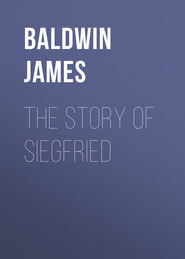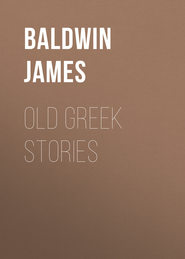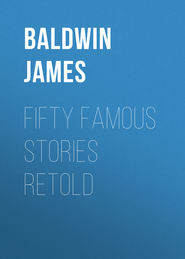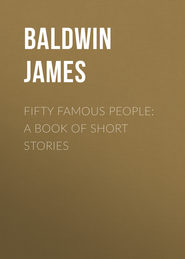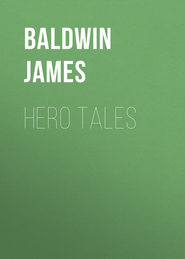По всем вопросам обращайтесь на: info@litportal.ru
(©) 2003-2024.
✖
Four Great Americans: Washington, Franklin, Webster, Lincoln
Настройки чтения
Размер шрифта
Высота строк
Поля
They insulted the officers of our government; they threatened war.
The whole country was aroused. Congress began to take steps for the raising of an army and the building of a navy. But who should lead the army?
All eyes were again turned toward Washington. He had saved the country once; he could save it again. The President asked him if he would again be the commander-in-chief.
He answered that he would do so, on condition that he might choose his assistants. But unless the French should actually invade this country, he must not be expected to go into the field.
And so, at the last, General Washington is again the commander-in-chief of the American army. But there is to be no fighting this time. The French see that the people of the United States cannot be frightened; they see that the government cannot be driven; they leave off their abuse, and are ready to make friends.
Washington's work is done now. On the 12th of December, 1799, he mounts his horse and rides out over his farms. The weather is cold; the snow is falling; but he stays out for two or three hours.
The next morning he has a sore throat; he has taken cold. The snow is still falling, but he will go out again. At night he is very hoarse; he is advised to take medicine.
"Oh, no," he answers, "you know I never take anything for a cold."
But in the night he grows much worse; early the next morning the doctor is brought. It is too late. He grows rapidly worse. He knows that the end is near.
"It is well," he says; and these are his last words.
Washington died on the 14th of December, 1799. He had lived nearly sixty-eight years.
His sudden death was a shock to the entire country. Every one felt as though he had lost a personal friend. The mourning for him was general and sincere.
In the Congress of the United States his funeral oration was pronounced by his friend, Henry Lee, who said:
"First in war, first in peace, and first in the hearts of his countrymen, he was second to none in the humble and endearing scenes of private life. Pious, just, humane, temperate, uniform, dignified, and commanding, his example was edifying to all around him, as were the effects of that example lasting.
"Such was the man America has lost! Such was the man for whom our country mourns!"
THE STORY OF
BENJAMIN FRANKLIN
TO THE YOUNG READER
* * * * *
I am about to tell you the story of a very great and noble man. It is the story of one whom all the world honors—of one whose name will forever be remembered with admiration. Benjamin Franklin was not born to greatness. He had none of the advantages which even the poorest boys may now enjoy. But he achieved greatness by always making the best use of such opportunities as came in his way. He was not afraid of work. He did not give up to discouragements. He did not overestimate his own abilities. He was earnest and faithful in little things; and that, after all, is the surest way of attaining to great things. There is no man to whom we Americans owe a greater debt of gratitude. Without his aid the American colonies would hardly have won independence. It was said of him that he knew how to subdue both thunder and tyranny; and a famous orator who knew him well, described him as "the genius that gave freedom to America and shed torrents of light upon Europe." But, at the close of a very long life, the thing which gave him the greatest satisfaction was the fact that he had made no man his enemy; there was no human being who could justly say, "Ben Franklin has wronged me."
THE STORY OF BENJAMIN FRANKLIN.
* * * * *
I.—THE WHISTLE
Nearly two hundred years ago, there lived in Boston a little boy whose name was Benjamin Franklin.
On the day that he was seven years old, his mother gave him a few pennies.
He looked at the bright, yellow pieces and said, "What shall I do with these coppers, mother?"
It was the first money that he had ever had.
"You may buy something with them, if you would like," said his mother.
"And will you give me more when they are gone?" he asked.
His mother shook her head and said: "No, Benjamin. I cannot give you any more. So you must be careful not to spend them foolishly."
The little fellow ran out into the street. He heard the pennies jingle in his pocket as he ran. He felt as though he was very rich.
Boston was at that time only a small town, and there were not many stores. As Benjamin ran down toward the busy part of the street, he wondered what he should buy.
Should he buy candy or toys? It had been a long time since he had tasted candy. As for toys, he hardly knew what they were.
If he had been the only child in the family, things might have been different. But there were fourteen boys and girls older than he, and two little sisters that were younger.
It was as much as his father could do to earn food and clothing for so many. There was no money to spend for toys.
Before Benjamin had gone very far he met a boy blowing a whistle.
"That is just the thing that I want," he said. Then he hurried on to the store where all kinds of things were kept for sale.
"Have you any good whistles?" he asked.
He was out of breath from running, but he tried hard to speak like a man.
"Yes, plenty of them," said the man.
"Well, I want one, and I'll give you all the money I have for it," said the little fellow. He forgot to ask the price.
"How much money have you?" asked the man.
Benjamin took the coppers from his pocket. The man counted them and said, "All right, my boy. It's a bargain."
Then he put the pennies into his money drawer, and gave one of the whistles to the boy.
Benjamin Franklin was a proud and happy boy. He ran home as fast as he could, blowing his whistle as he ran.
His mother met him at the door and said, "Well, my child, what did you do with your pennies?"
"I bought a whistle!" he cried. "Just hear me blow it!"
"How much did you pay for it?"
"All the money I had."
One of his brothers was standing by and asked to see the whistle. "Well, well!" he said, "did you spend all of your money for this thing?"






